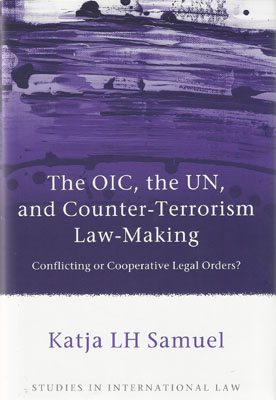
The increasingly transnational nature of terrorist activities compels the international community to strengthen the legal framework in which counter-terrorist activities should occur, including at the intergovernmental level.
This unique, timely, and carefully researched monograph examines one such important intergovernmental organisation, the Organisation of Islamic Cooperation ('OIC', formerly the Organisation of the Islamic Conference). In particular, it analyses in depth its institutional counter-terrorist law-making practice, and the relationship between resultant OIC law and comparable UN norms.
Furthermore, it explores two common (mis)assumptions regarding the OIC, namely whether its internal institutional weaknesses mean that its law-making practice is inconsequential at the intergovernmental level, and whether its self-declared Islamic objectives and nature are reflected within OIC law.
Where significant normative tensions are discerned between OIC and UN law – for example, the definitional impasse posed by the OIC in relation to the ongoing negotiations of the draft UN Comprehensive Convention on International Terrorism - the monograph explores not only whether these may be explicable, at least in part, to the OIC's Islamic nature, but also whether their corresponding institutional legal orders are conflicting or cooperative in nature, and the resultant implications for the international counter-terrorist framework.
This monograph is expected to appeal especially to national and intergovernmental counter-terrorist practitioners and policy-makers, and to all scholars interested in the interaction of Islamic norms within the wider international political system.